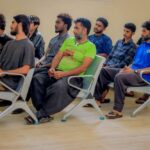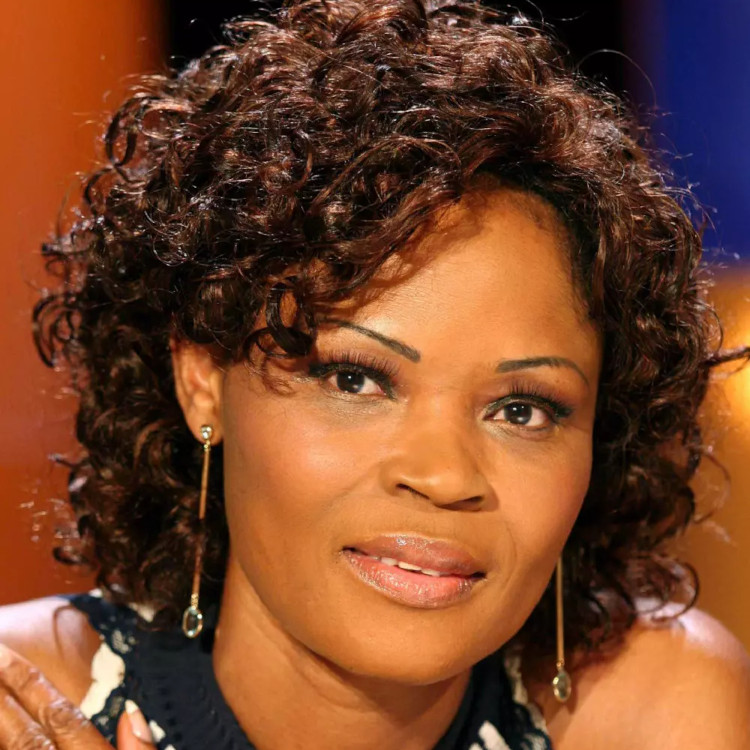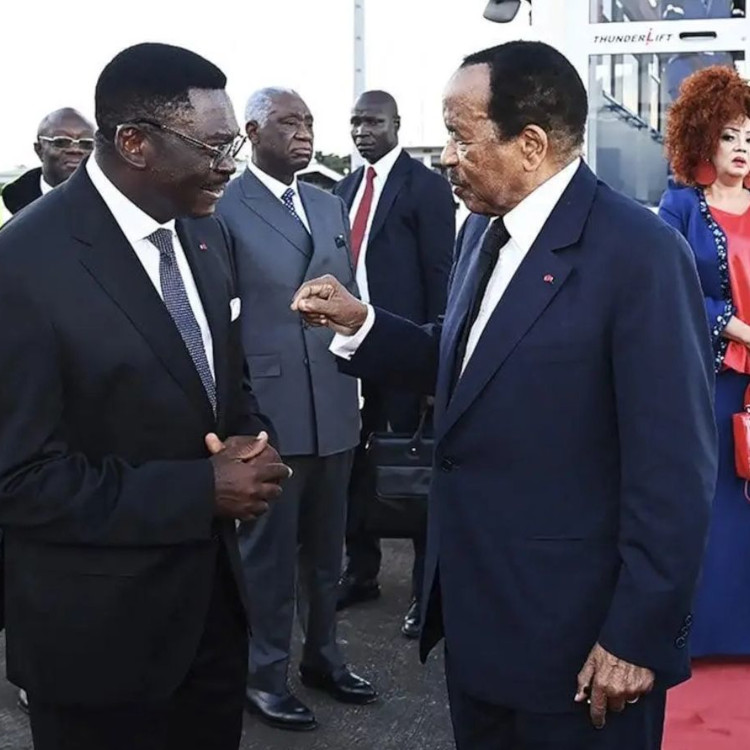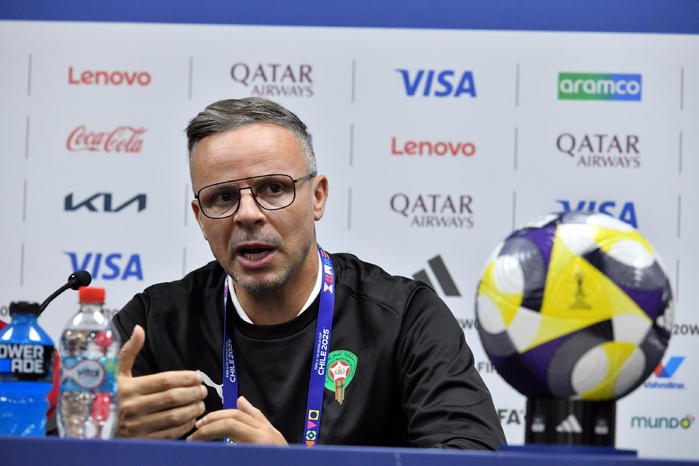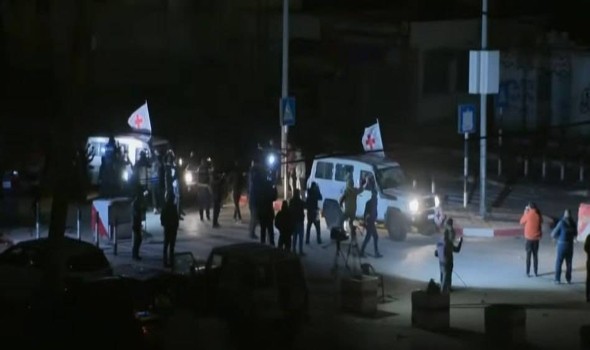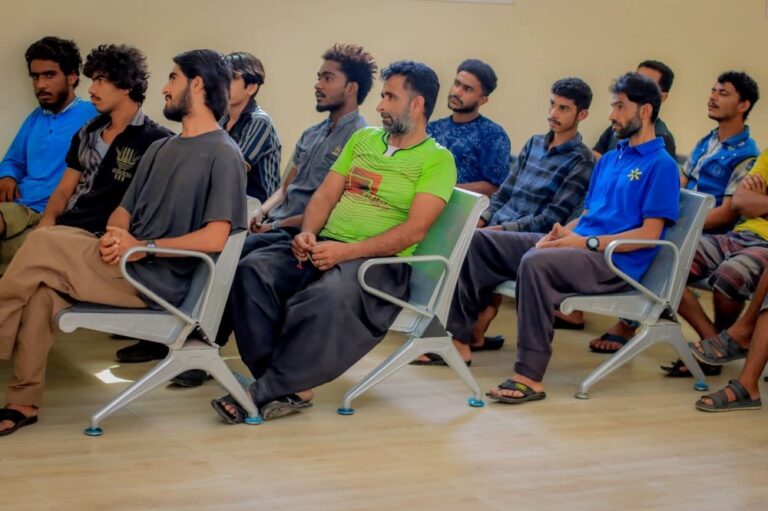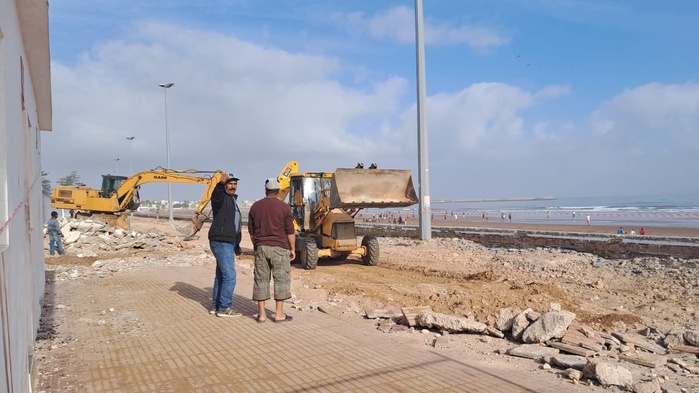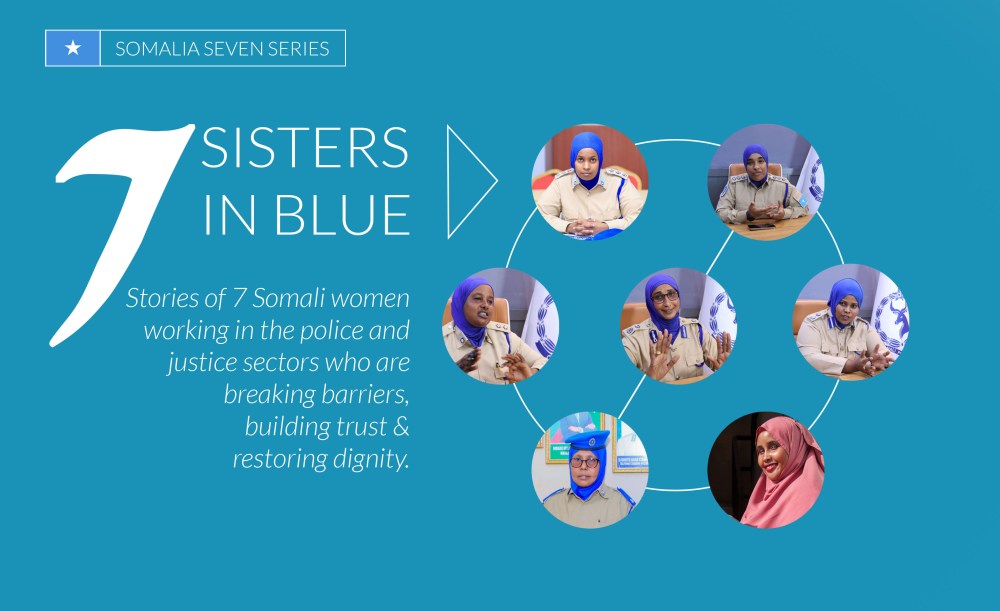
Stories of seven Somali women working in the police and justice sectors who are breaking barriers, building trust and restoring dignity.
Somalia is a country of breathtaking beauty, rich culture, and extraordinary resilience. Yet, all too often, global narratives about Somalia are dominated by conflict, poverty, and instability casting a shadow over the real stories of strength and transformation happening every day.
In this third entry of the #SomaliaSeven series, we bring to you stories of seven remarkable Somali women working in the police and justice sectors who are not only breaking barriers but also building trust, restoring dignity, and reshaping how justice is delivered in their communities.
These stories offer a new lens on Somalia: not one of despair, but of determination. Not just of survival, but of transformation. Because when Somali women rise, communities rise with them.
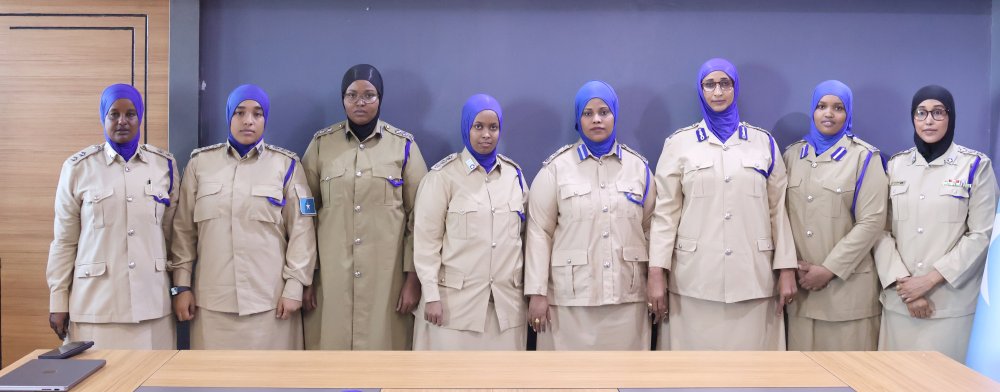
1. Colonel Rahma Salad: Symbol of Resilience and Leadership
Born in Diinsoor district in Southwest State of Somalia, Colonel Rahma Salaad Mohamed, 44, stands as a symbol of resilience and leadership in a country once known as one of the most challenging security environments in the world. As the current Police Station Commander of Hamar Jajab District in Mogadishu, her journey is one of grit, service, and unshakable dedication to Somalia’s recovery.
Rahma joined the Somali Police Force in 2007, driven by the harsh economic realities of post-conflict Somalia. “I was three months pregnant when I began my training,” she recalls.
“We were 79 recruits, only 10 of us were women. We were trained in Labatan Jirow village, 35 km north in Bay region, where we ran 10 kilometers every morning in a territory where lions lived and roam.”
Despite the hardship, she quickly rose and became the leader of her unit of 101 cadets.
Her early service was marked by devastation. After completing training in Labatan Jirrow, she witnessed the aftermath of a brutal attack on the road between Baidoa and Burhakaba, where she saw over 50 people dead in one place. “That was my first assignment, burying the dead,” she says.
Amid the ruins of Mogadishu, Colonel Rahma was part of the very second police force reassembled after the civil war. “We rehabilitated our own stations with bare hands. Every night, we were under siege by insurgents who would later become Al-Shabaab,” she explains. “We guarded reconciliation conferences and protected civilians under fire.”
In one unforgettable moment, two armed women assailants disguised as vegetable vendors attempted to attack a peace talk. “I stopped them myself,” she says. “That day, many lives were saved.”
Colonel Rahma’s service has spanned all national elections since 2007, and she has provided security for three elections. She has held command in multiple districts including Shangani, Shibis, Waberi, and now Hamar Jajab in the capital Mogadishu. Her current team includes 135 officers, 30 of whom are women.
Today, the most common cases she handles involve domestic violence, family disputes, and petty crimes. “I refer every case to the courts for proper legal action,” she notes.
With over 17 years in the force, Rahma has witnessed war, loss, and unimaginable hardship—but also progress. “I’ve seen this country break, and I’ve seen it stand again,” she says. “And I’m proud to be one of those holding the line.”
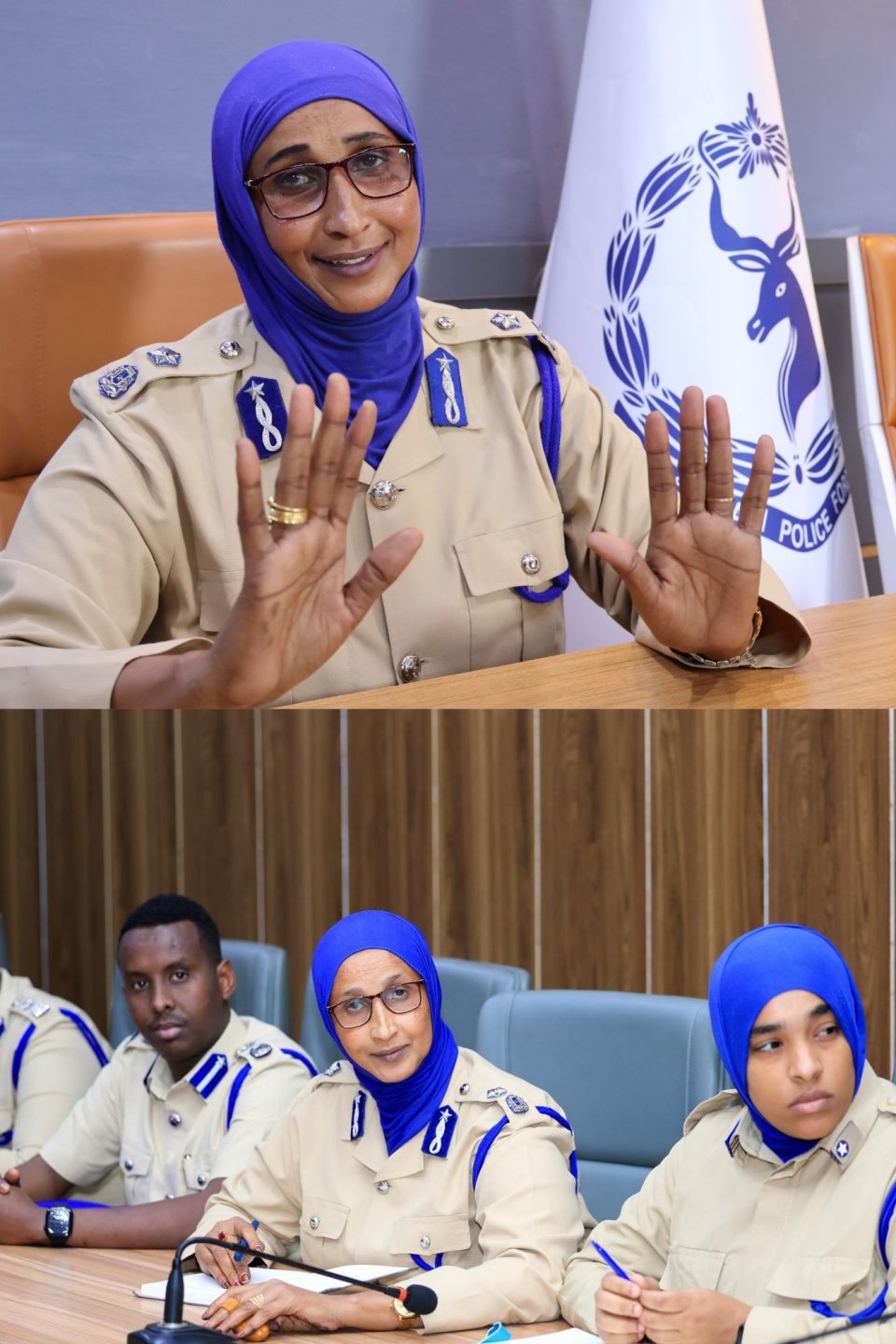
2. First-Lieutenant Halim Sadiyo Yusuf Abdulle
First-Lieutenant Halim Sadiyo Yousuf, now 38, serves as the Head of Somali Police Orphanage Care, a role that crowns a journey built on resilience, courage, and quiet determination to defy stereotypes. The center gives the children of deceased police officers a chance at a brighter future by providing a safe environment and access to education and care.
When Halim joined the police force in 2007, society met her decision with disrespect. “My neighbors told my mother I had lost my way, that I would bring shame to the family,” she recalled. “They believed only the worst girls joined the police.” But Halim had long admired the policewomen she saw near her home. “Since childhood, I dreamed of wearing the uniform and helping the vulnerable—children, mothers, the elderly.”
Her mother supported her, trusting her daughter’s sense of purpose, but her father resisted. “After many discussions, he finally agreed,” she said. “I was the first born to my mother, and she believed in me.”
Halim underwent rigorous training at Labatan Jirow, 35 km from Baidoa, with 880 recruits—including 80 women. She completed the three-month training, which combined physical endurance with deep lessons in law enforcement and public duty. After graduation, she began her career in Mogadishu’s police finance department.
But the path wasn’t smooth. Due to intense conflict and security risks, Halim left the force temporarily. “I feared for my safety,” she said. “The country was in chaos.” She returned in 2012 to help secure Somalia’s parliamentary elections, protecting MPs at General Kahiye Police Academy in Mogadishu. Later, she transferred to Mogadishu Airport, where she ensured the safety of passengers and airport staff.
In 2014, Halim was appointed head of Somalia’s police orphanage center, a role she continues to serve in today. The center was established in 2017 and supports over 300 children of fallen police officers, providing education, care, and guidance. “This is more than a job; it’s a mission,” she said.
One moment she’ll never forget was a narrow escape in Bakara Market. “We were 79 female officers in uniform traveling between two stations when our vehicle broke down in the middle of a high-risk area. Suddenly, a man ran toward us and threw a grenade. Miraculously, it didn’t explode. Nearby officers came and helped us. That day could have ended very differently.”
Over time, the perception of female officers has changed. “People used to look down on us,” Halim said. “Now, when they see me in uniform with rank, they show respect. They’re even proud.”Her ultimate dream? “To one day serve as Somalia’s Police Commissioner.” With a record of unwavering service across election security, community safety, and child protection, she’s walking boldly in that direction.
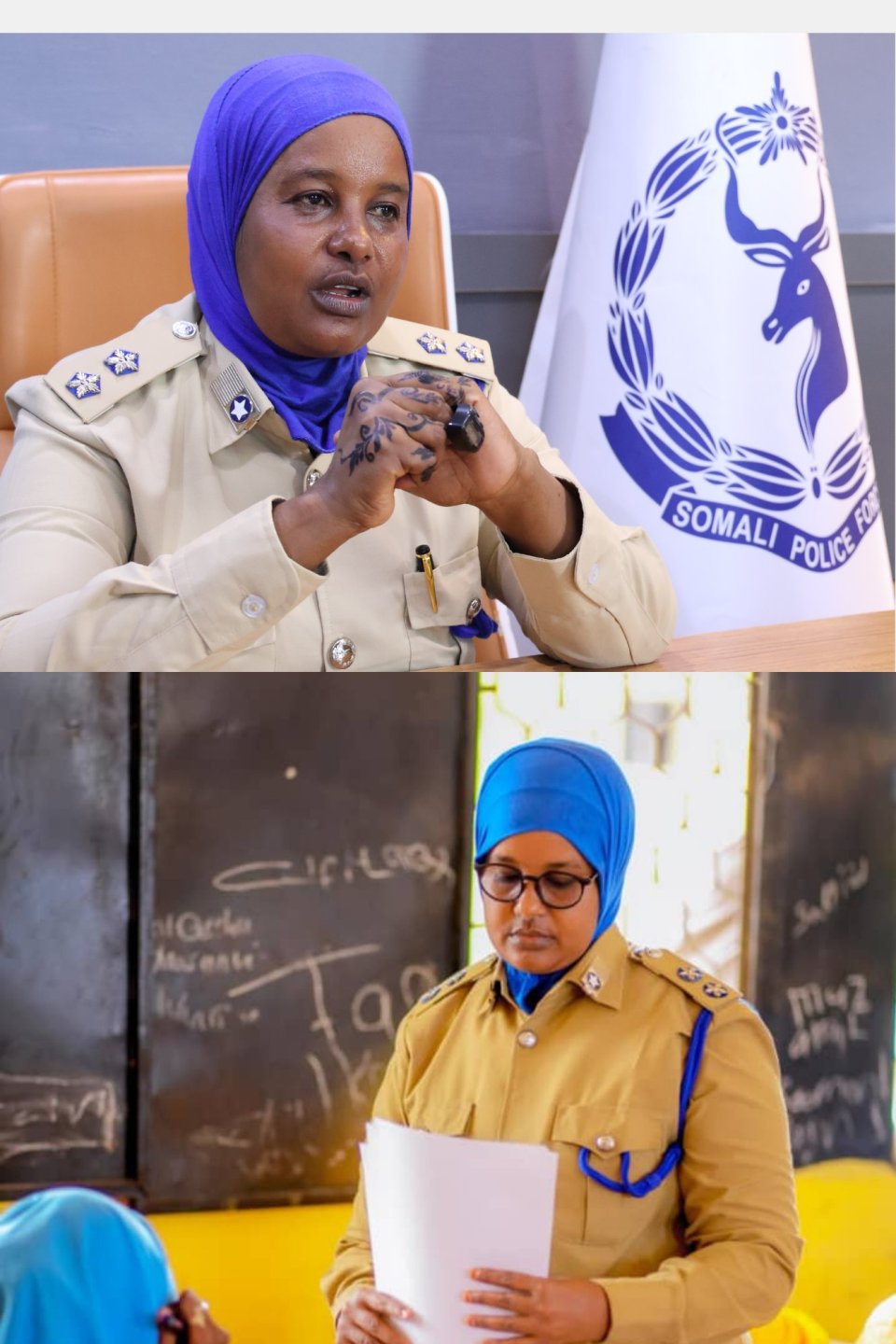
3. Captain Samira Nazar’s bold return to serve her homeland
“Police work is more than a job, it is a form of worship, a duty to serve your people and your country,” says Captain Samira, a Somali-Norwegian trailblazer whose story is reshaping what it means to serve in Somalia’s security sector
Samira was born in Mogadishu in 1997 and raised in Norway, where her fascination with law enforcement began early. Her dream was that one day to return to Somalia to be part of those making the difference in the country – building peace.
“I came back to help my people,” she says. After seeing an announcement about new police recruitment in the internet, Samira packed her academic certificates—including her degree in Criminology and Security Studies—and flew home. She passed the entrance exams and joined a 45-day police training program alongside 198 other recruits, 21 of them women.
Following initial training, Samira was selected for advanced training in Djibouti. When she returned, she began her police career working in the Somali Police Commissioner’s Office, quickly rising through the ranks. Her next assignment placed her on a mobile unit tasked with overseeing checkpoints throughout Mogadishu—a crucial role for a city navigating security threats and rebuilding civic trust.
“It wasn’t easy,” she admits. “But during the COVID-19 outbreak, we expanded our work, leading awareness campaigns and keeping the public informed and safe.” The success of these efforts did not go unnoticed.
Impressed by her performance, the Somali Police Commissioner appointed Samira as Police Station Commander for Shibis District, a role traditionally held by men. She embraced the challenge and thrived—handling cases ranging from domestic violence and family disputes to theft and public safety with discipline and compassion.
Today, Captain Samira serves as Deputy Commander of the Bartamaha Division in Mogadishu, overseeing five police stations and coordinating operations that impact thousands of residents.
“Managing security in Mogadishu is not an easy task,” she says, “but when I see children walking to school safely and markets buzzing with activity, I know we are making a difference.”
She has also trained new recruits in Galmudug, helping shape the next generation of law enforcement officers. For Samira, the work is deeply personal—and spiritual.
“When I wear the police uniform, I feel a huge responsibility on my shoulders. But I also feel proud. My vision is for a Somalia built on the rule of law, peace, and prosperity.”
Captain Samira’s story is one of courage, service, and unwavering commitment—a testament to what’s possible when purpose meets passion.
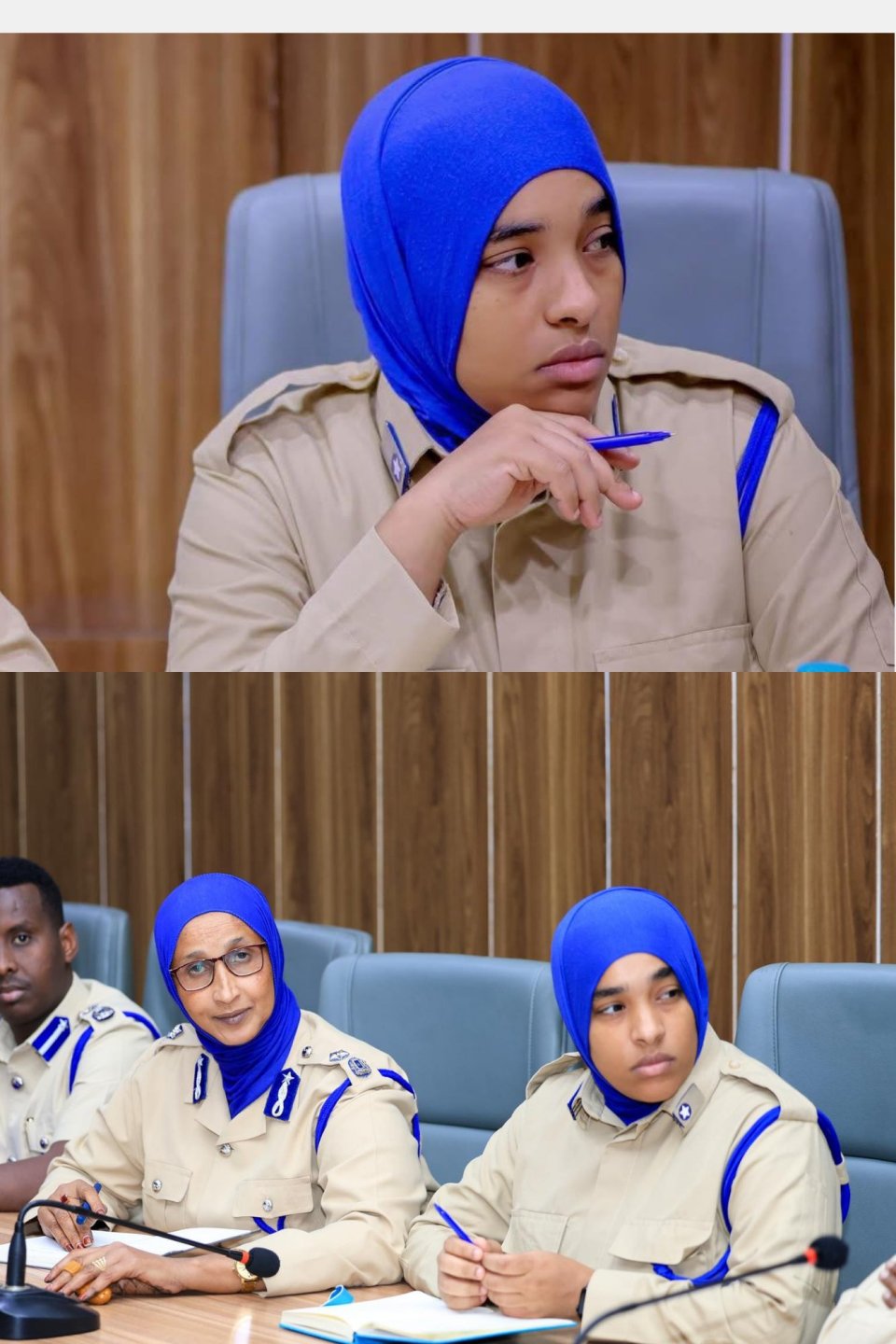
4. Captain Fatima Abdulkadir: A Trailblazer in Somali Policing
At just 18, Fatima Abdulkadir heard a radio announcement that would change her life: the government was rebuilding the police force and recruiting at Puntland’s Armo Police Academy. Without hesitation, she applied, setting in motion a journey that would see her rise from trainee to captain, legal advisor, and policymaker in Garowe, Puntland.
Her path wasn’t easy. She faced skepticism and discouragement from her own family—except for her mother, who firmly believed in the power of education. “Everyone told me policing would ruin my future,” Fatima recalls. “But my mother always reminded me of the famous quote by Nelson Mandela: ‘Education is the most powerful weapon you can use to change the world.’” That belief carried her through rigorous training, personal loss, and professional resistance.
Fatima didn’t stop at basic training. With support from UNDP, she pursued advanced courses in criminal investigation, data management, and community policing. She even became a trainer herself, helping to prepare over 1,800 new recruits and shaping the next generation of Somali police officers.
But she wanted more. Understanding that decision-making power required more than experience, Fatima earned a law degree through a UNDP scholarship program. As part of her studies, she interned at Garowe Police Station, where she provided legal support—often to displaced and marginalized women. “I was shocked by the number of women reporting violence, rape, and forced marriages,” she says. “We explained their rights and helped them pursue justice, even in the face of fear.”
In one landmark case, Fatima and a mother pushed back against attempts to quietly settle the rape of a 7-year-old girl. Their persistence led to the perpetrator receiving a 17-year prison sentence—a powerful example of justice in action.
Currently, Fatima serves as Head of the Gender and Legal Unit in the Puntland Police, where she trains and advises on legal and gender-related work. She has also served on a strategic policy committee for the Puntland Police, shaping reforms under the UN-supported New Policing Model. Her mission is clear: bring more women into the force and advance community policing.
“Women are less corrupt, more trusted, and better understand the community,” she says. “That’s why I tell Somali women: join the police—you can make real change from within.”
Despite resistance and harassment, Captain Fatima has become a symbol of trust, justice, and courage in Somalia. “When girls see me in uniform,” she says proudly, “they feel safe. They feel seen. And they speak up.”
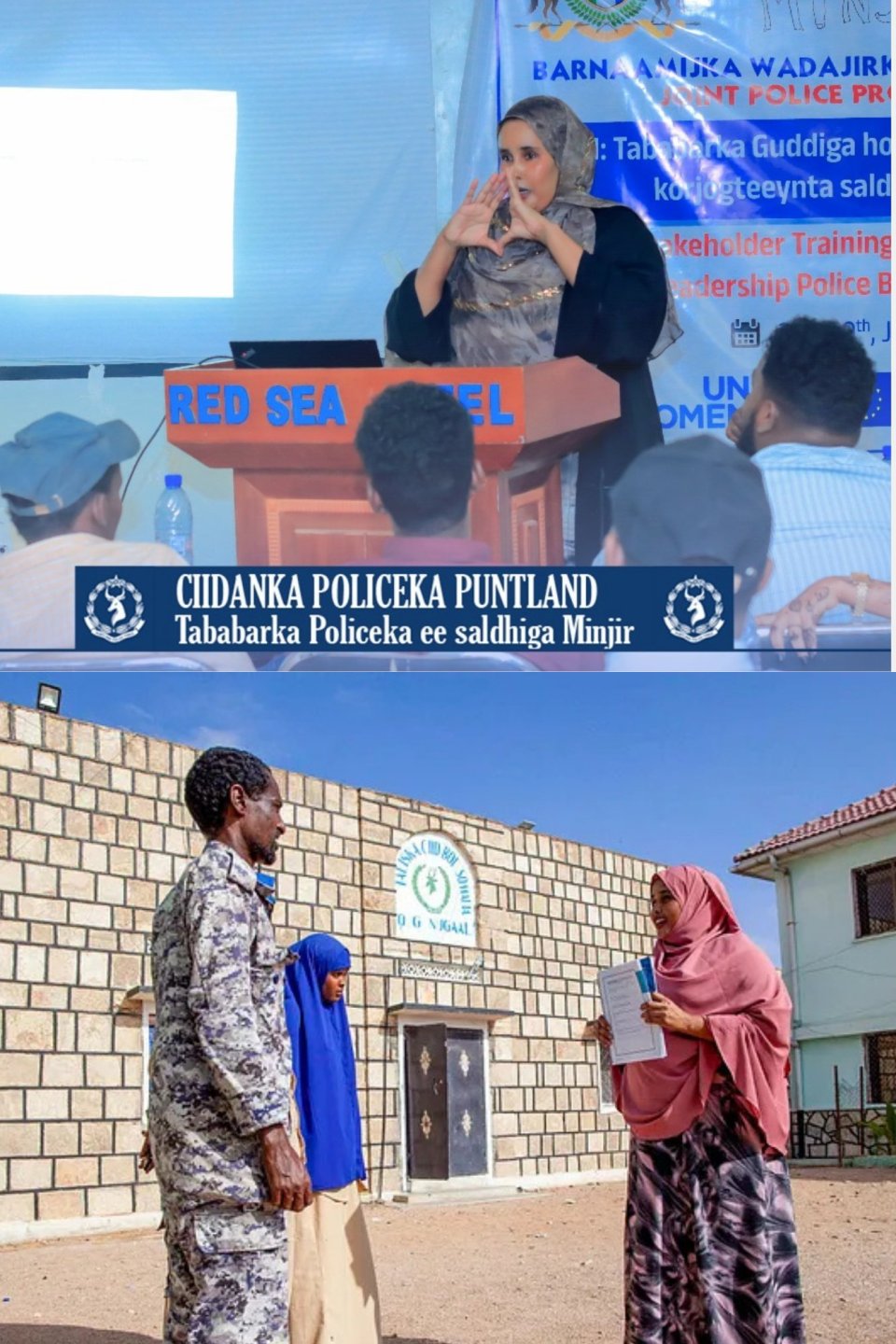
5. Lt. Col. Idil Abdullahi Hassan: Rebuilding justice from the ground up in Somalia
“Wearing the uniform isn’t just a work, it’s a national duty carried on your shoulders,” said Idil”.
Lieutenant Colonel Idil Abdullahi Hassan was born in Mogadishu and is the eldest in her family. She witnessed the devastation of Somalia’s civil war with her own eyes, a chapter that uprooted her family and sent them to Kenya, where she pursued her education before advancing to university studies in Malaysia. Her return to Mogadishu in 2014 was meant to be a brief visit, but everything changed.
“I never imagined joining the police,” she says. “But when I returned, I felt an obligation to stay and be part of the change happening in the country.”
In 2015, Idil joined the Somali Police Force at a time when the country was navigating a fragile path toward stability. She quickly identified a critical gap in the force—there was no dedicated unit addressing sexual and gender-based violence (SGBV), despite the country’s dire need. Rising to the moment, Idil founded Somalia’s first-ever SGBV police department after the civil war.
“It was a turning point. We didn’t just handle rape and abuse cases, we delivered justice, and survivors began to believe in the system again,” she says.
The impact of her leadership didn’t stop there. Other government institutions soon followed her lead, establishing similar gender desks in their structures. Idil’s department has helped survivors find justice, comfort, and dignity—often for the first time in their lives.
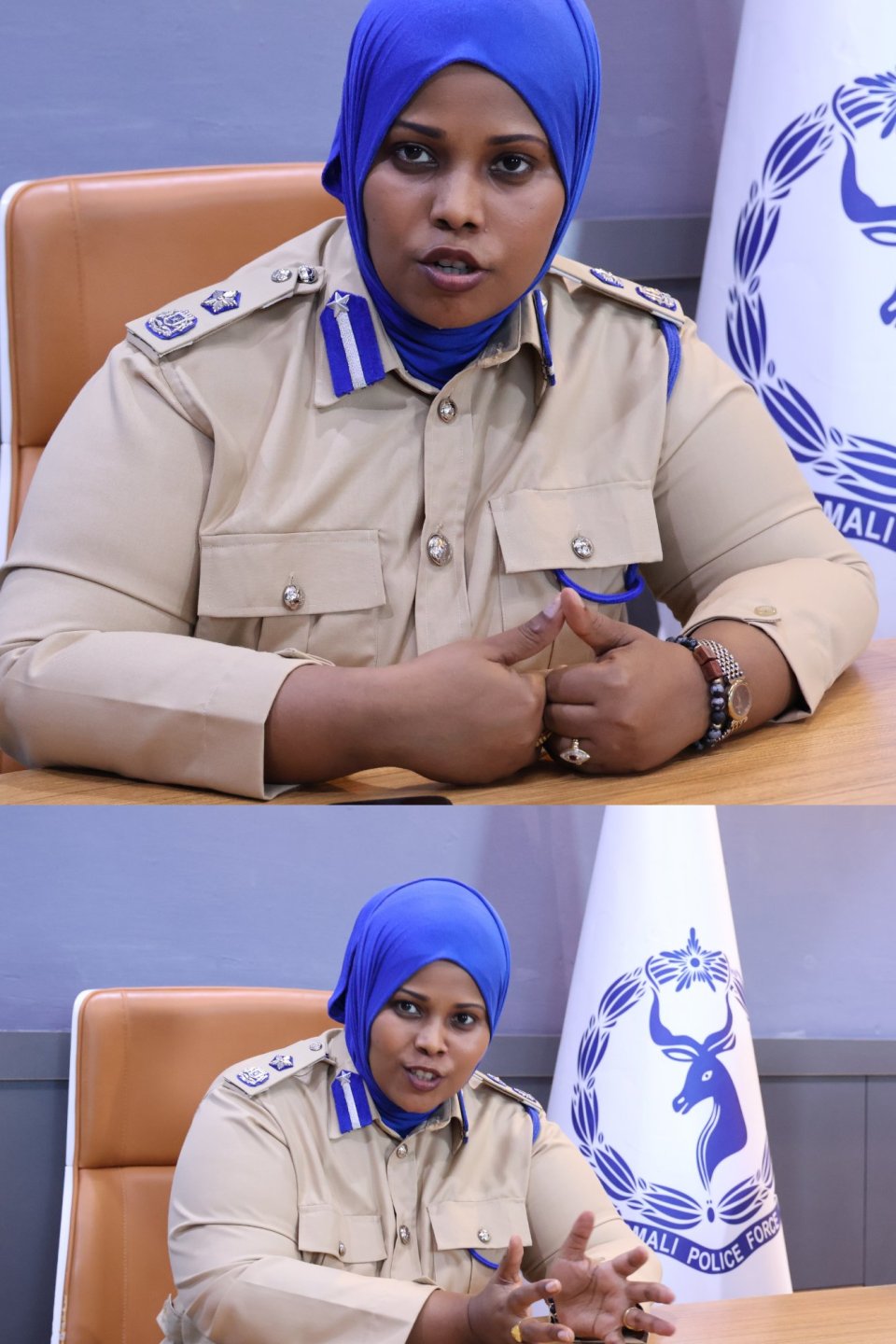
6. Captain Fardowso Abdullahi Abdidon: Protector of Women and Children
“Policing isn’t just a career, it’s a calling to protect the most vulnerable.”
Captain Fardowso Abdullahi Abdidon, 30 years old, is one of Somalia’s most determined defenders. Born and raised in Mogadishu, she holds a law degree and began her career in the mayor’s office before shifting to a path that would change her life and many others.
In 2016, driven by a passion for justice and security, she joined the Somali Police Force. She underwent rigorous training in both Mogadishu and Djibouti, often alongside men, on remote training grounds and in harsh conditions. “It was tough,” she says, “but I promised myself I wouldn’t quit and I didn’t.”
After graduating, she was assigned to the Stabilization Forces in Mogadishu a specialized police unit focused on neutralizing threats from Al-Shabaab and safeguarding the city’s most vital roads, including Maka Al-Mukarama Road.
She quickly rose through the ranks. In 2019, Fardowso was appointed Deputy Commander of Waaberi District, then one of Mogadishu’s most violent areas. Under her leadership, she initiated nightly operations, reducing crime and restoring public trust.
“In six months, not a single person was killed in the district. That was my proudest moment,” she says. “We turned fear into safety.”
Today, Fardowso heads Somalia’s National Unit for the Protection of Women and Children, taking on complex cases involving rape, domestic violence, forced marriage, FGM, and the growing tragedy of abandoned children.
“One of the most painful cases I’ll never forget,” she recalls, “was a baby found bleeding on the street, one of his legs and a hand was eaten by dogs. We tried everything, but he didn’t survive. I carried him myself and buried him the next morning.”
Her mission is deeply personal and deeply national. “I want to serve Somalia as Minister of Security one day,” she says with conviction. “Because safety is not just about weapons it’s about dignity, rights, and a future worth protecting.”
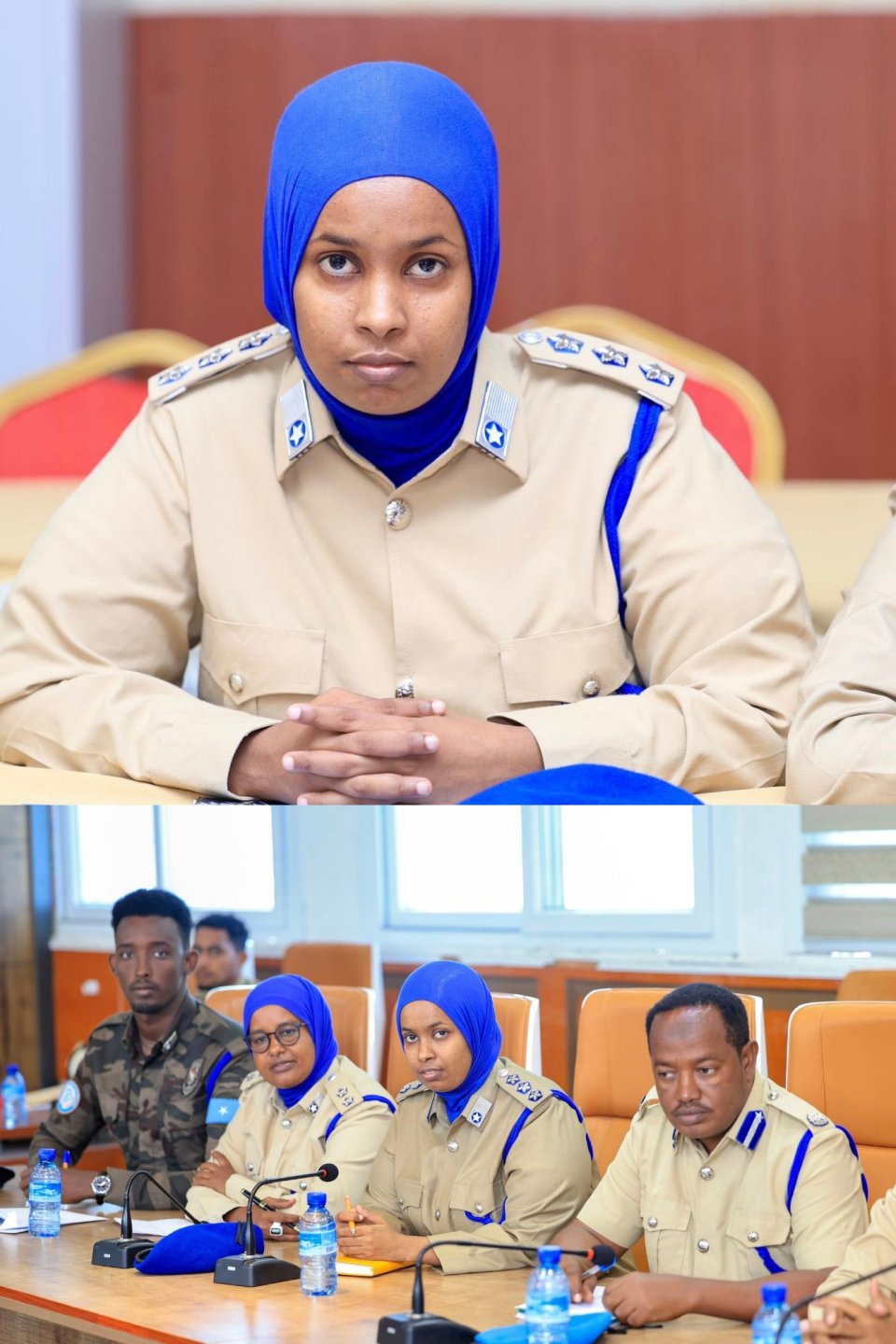
7. First Lieutenant Farhiyo’s Fight for Justice
First Lieutenant Farhiyo Ahmed, a mother of nine and a veteran police officer in Somalia’s South West State, has spent nearly two decades building trust, pursuing justice, and protecting the vulnerable. Today, she leads the Gender Department in the Bay region, a role she fought to create and continues to expand with courage and conviction.
Born in Mogadishu and raised in Buale city in the Middle Jubba region, Farhiyo joined the Somali Police Force in 2006, becoming part of the very first batch of police officers trained after the civil war. The conditions were harsh. At the Labatan Jarow training camp, located 35 kilometers north of Baidoa, the facilities had been destroyed. “We had to rebuild our own training classrooms. Out of over 600 recruits, only 10 of us were women,” she recalls. The six-month training was tough, but Farhiyo was driven by a mission greater than herself.
“I joined the police because of the alarming cases of violence against women and children. I couldn’t stand by any longer,” she says. “I convinced nine other women to join me. We wanted to make it easier for survivors to come forward, especially in cases of rape, where victims often feel ashamed or fearful speaking to male officers.”
After completing her training, Farhiyo was deployed to Baidoa Police Station where she was the only female officer at the time. She worked tirelessly, registering cases and later rotating through various departments including operations, logistics, and finance. In 2016, with support from international partners, she established the region’s first Gender Department within the police force.
The initiative quickly grew into a lifeline for many. Farhiyo and her team conducted regular outreach across Baidoa and its many IDP camps, raising awareness and distributing hotline number 2447 for reporting domestic violence. “Every week, we visited camps for three days,” she says. “IDPs are among the most vulnerable, and we needed to be present where they lived.”
Over the years, Farhiyo has dealt with heartbreaking cases, but this case is unforgettable.
“A 7-year-old girl was raped by a 19-year-old boy while she was in the toilet, she bled so badly and fell into a coma. I was the first responder. I took her to the police, then the hospital and arranged counseling. Unfortunately, soon after traditional elders came to try settling it internally, I insisted it go to court. With my police commander’s support, the perpetrator was taken to court and sentenced to five years and ordered to pay compensation. Justice must be pursued through the law,” said Farhiyo Ahmed.
Today, Farhiyo leads a functioning department where cases are fewer, but the work remains vital. “We used to receive multiple rape reports every week. Now, we might see two a month,” she notes. “Family disputes are still common, but the overall situation has improved. The city is more peaceful.”
Her journey is evidence of resilience, leadership, and the quiet power of women rewriting the future of Somalia.
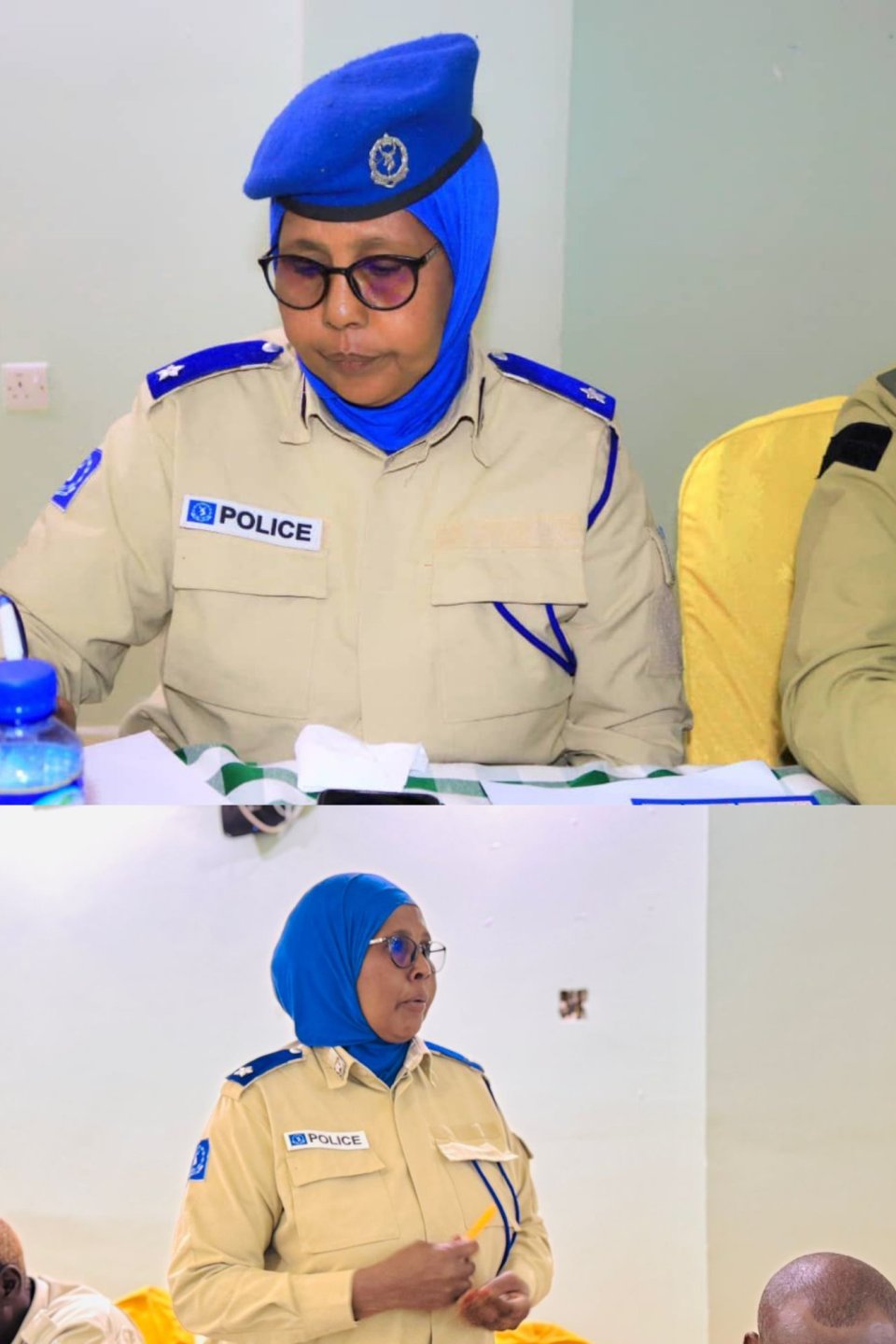
“Women will continue to grow within the Somali Police Force:” Police Commissioner Brig. Gen. Asad
“Women are transforming the Somali Police Force (SPF). Once sidelined, they now make up nearly 20% of the force, serving in frontline operations, community policing, and child protection, with some rising to senior leadership roles. Their presence has strengthened accountability, professionalism, and public trust,” says Brig. Gen Asad.
“We have a dedicated strategy for women in the police. Somali women are not just part of the police, they are shaping its future. God willing, women will continue to grow within the Somali Police Force — holding key positions, earning promotions, and thriving in their careers,” says Brig. Gen Asad.
With support from the UN and partners, the SPF is promoting policing as a sustainable career for women, backed by training, mentorship, and leadership programs.
Source: UNDP Somalia





